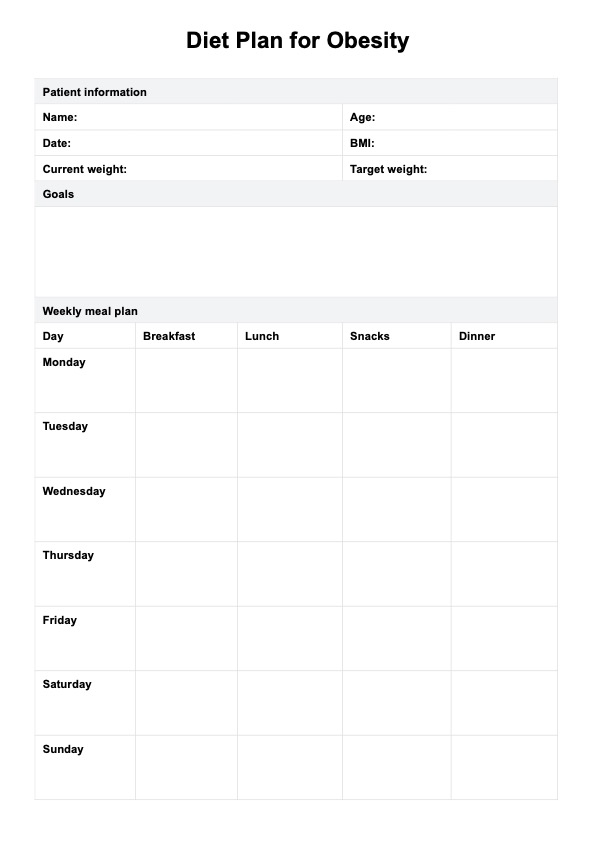Adopt a healthy diet rich in whole foods, increase physical activity, and ensure adequate hydration. Consistency and a focus on lifestyle changes are essential to maintain a healthy weight.

Diet Plan for Obesity
Explore effective obesity management with our Diet Plan for Obesity, tailored for health professionals to guide patients toward sustainable weight loss.
Use Template
Diet Plan for Obesity Template
Commonly asked questions
The best low-fat diet plan is personalized, focusing on reducing calorie intake through balanced portions of whole foods, lean proteins, and healthy fats while incorporating regular physical activity.
Diet is crucial because it determines your calorie intake. Eating nutrient-dense, lower-calorie foods helps create a calorie deficit, essential for weight loss.
EHR and practice management software
Get started for free
*No credit card required
Free
$0/usd
Unlimited clients
Telehealth
1GB of storage
Client portal text
Automated billing and online payments











